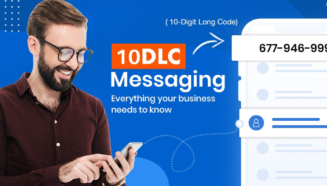In today’s digital age, where attention spans are dwindling, and remote work is becoming the
norm, businesses are increasingly turning to video as a powerful tool for communication. From
internal collaboration to customer engagement, the benefits of incorporating video into
communication strategies are abundant. Let’s explore some of the key advantages:
1. Enhanced Engagement:
Video captures attention more effectively than text or static images. With dynamic visuals,
compelling narratives, and the ability to evoke emotions, video content engages viewers on a
deeper level, leading to higher retention of information and messaging.
2. Improved Clarity and Understanding:
Complex concepts or instructions can be conveyed more clearly through video demonstrations
or tutorials. Visual aids, such as animations, diagrams, and real-life examples, enhance
comprehension and facilitate learning, making it easier for audiences to grasp intricate details.
3. Personalized Connection:
Video humanizes communication by putting a face to the message. Whether it’s a CEO sharing
company updates, a customer service representative addressing queries, or a salesperson
pitching a product, video fosters a personal connection, building trust and rapport with viewers.
4. Global Reach:
In a world where geographical barriers are no longer a limitation, video enables organizations to
communicate with audiences worldwide. Whether it’s live streaming events, hosting webinars, or
sharing pre-recorded content, video transcends borders, allowing businesses to connect with
diverse audiences across different time zones.
5. Time and Cost Efficiency:
Video eliminates the need for lengthy written communications or in-person meetings, saving
both time and resources. Whether it’s conducting virtual meetings, delivering training sessions,
or sharing updates, video communication streamlines processes, enabling efficient collaboration
and knowledge dissemination.
6. Increased Accessibility:
Video accommodates diverse learning styles and preferences, making information more
accessible to a wider audience. With captions, subtitles, and transcripts, videos cater to
individuals with hearing impairments or those who prefer visual aids, ensuring inclusivity and
equitable access to information.
7. Measurable Impact:
Digital platforms offer robust analytics tools that allow businesses to track the performance of
their video content. Metrics such as views, engagement rates, and audience demographics
provide valuable insights into the effectiveness of communication strategies, enabling
organizations to refine their approach and optimize results.
8. Competitive Advantage:
In a competitive marketplace, leveraging video communication sets businesses apart from their
peers. By embracing innovative and visually compelling content, organizations can captivate
audiences, differentiate their brand, and stay ahead in an ever-evolving digital landscape.
In conclusion, the benefits of video for communication are undeniable. From fostering
engagement and understanding to expanding reach and driving efficiency, video empowers
businesses to connect with their audiences in meaningful ways, ultimately driving success and
growth in today’s dynamic business environment.






